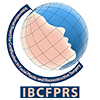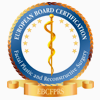Ramsay Hunt syndrome, one of the viral infections that can affect different nervous systems of our body, is a serious neurological disease that affects the facial nerves, causing sudden facial paralysis, ear pain and rashes. If you want to learn more about this very important disease, you can review our “Ramsay Hunt Syndrome” content we have created for you and have detailed information. We wish you all good reading and healthy days.
What is Ramsay Hunt syndrome?
Ramsay Hunt syndrome is a neurological disorder caused by the Varicella-Zoster virus (the causative agent of chickenpox and shingles) affecting the facial nerves. The disease is named after the American neurologist James Ramsay Hunt, which is why the name of the disease has become synonymous with the doctor. This disease usually develops in people who have had chickenpox when the virus reactivates after many years. The most common symptoms are facial paralysis, painful rashes in or around the ear, hearing loss and dizziness. There may also be symptoms such as impaired sense of taste, dry eyes and speech difficulties. If left untreated, this very important disease can lead to permanent facial paralysis or serious complications such as hearing loss.
What Are The Symptoms of Ramsay Hunt Syndrome?
Most types of facial paralysis affect the nerves and muscles in the face. Since these types are different from each other, the symptoms also vary, so the symptoms are observed more clearly whichever side of the facial nerve the viruses affect. Therefore, if the symptoms of Ramsay Hunt syndrome are known, the disease can be easily diagnosed and treatment methods are initiated in accordance with RHS. In this context, the symptoms of RHS disease caused by herpes zoster oticus virus are as follows;
- Muscle weakness or stiffness on one side of the face
- Difficulty trying to make facial expressions
- Difficulty wrinkling the forehead
- Difficulty smiling
- Rash on the tongue, throat and palate on the side where the facial nerves are affected
- Difficulty frowning
- Tinnitus
- Sagging on one side of the face
- Difficulty eating
- Increased sensitivity to sounds
- Voice hoarseness
- Loss of the sense of taste
- Severe ear pain
- Onset of vertigo
- Beginning to speak with a lisp
- The appearance of fluid-filled blisters in the ear canal or on the outside of the ear
- Redness and skin rash on and behind the earlobe
- Pain in the eardrum and ear canal
Ramsay Hunt Syndrome Diagnosis
RHS symptoms vary from person to person, making diagnosis extremely difficult. However, laboratory tests are an important determinant to reach the correct conclusion. Therefore, if the diagnosis is incorrect, the treatment will be ineffective. Therefore, you should be extremely careful when diagnosing RHS. The following methods can be used to diagnose RHS;
- A detailed history of the patient should be taken along with a physical examination including the ears.
- Hearing tests can determine whether hearing loss is present.
- Facial nerve functions such as eye closure are examined to gather information about the general condition.
- A blood test is needed to detect the viruses that cause RHS.
- MRI should be used to identify inflamed areas in the facial nerve and find the cause of the symptoms.
- Facial nerve function evaluation studies are performed to see the damage to the facial nerves.
- Electromyography is used to determine whether there is damage to the facial nerves.
All these tests and evaluation processes help to reach a definitive conclusion when diagnosing the herpes zoster oticus virus.
Who does Ramsay Hunt Syndrome Affect?
People who had chickenpox or shingles (varicella zoster virus) in childhood are at risk of RHS. The possibility of the viruses caused by these diseases sleeping under the skin increases the vulnerability to RHS. Therefore, although varicella zoster virus rarely affects children, it is more likely to occur in people over 60. Patients can experience serious symptoms due to these viruses that occur when the immune system is weakened. For this reason, Ramsay Hunt syndrome is unlikely to improve in older patients.
What Causes Ramsay Hunt Syndrome?
There are 2 different viruses that cause Ramsay Hunt syndrome. The activation of these viruses in an inactive state leads to RHS. To examine these Ramsay Hunt syndrome viruses;
- Chickenpox (varicella zoster virus (VZV)
- Shingles (herpes zoster oticus)
A known cause of RHS is when viruses lodge under the skin in people who have had chickenpox or shingles. The virus starts in the nerve fibers and travels through the skin. It causes a red, water-filled rash and painful sores on the skin. This leads to Ramsay Hunt syndrome because the viruses directly affect the facial nerve.
Is Ramsay Hunt Syndrome Contagious?
Ramsay Hunt syndrome is not contagious on its own. However, if you develop RHS, it indicates that you have shingles (varicella zoster virus) or chickenpox viruses (varicella zoster virus). At this point, although there are viruses in the fluid-filled blisters that are among the symptoms, there is a risk of transmission to people who touch or come into contact with the fluid.
People who have never had chickenpox or shingles and people who have not been vaccinated against chickenpox are at increased risk of RHS. Therefore, pregnant women, newborns, people who have not been vaccinated against chickenpox or who have not had chickenpox should avoid people with RHS.
Can Ramsay Hunt Syndrome Recur?
Ramsay Hunt syndrome can recur, although this is rare. RHS can recur if the varicella zoster virus (varicella zoster virus) or shingles virus (herpes zoster oticus) remains in the facial nerves for the rest of your life. Otherwise, the chances of this type of facial paralysis recurring are very low.
How is Ramsay Hunt Syndrome Treated?
With the right treatment methods, damage to facial nerves will not be permanent and symptoms will be less likely to occur. It is extremely important to intervene within the first 3 days to eliminate herpes zoster oticus and varicella zoster virus (VZV) type viruses. Thus, thanks to early diagnosis, treatment results can be obtained in a short time. In this context, the following methods are used in the treatment of ramsay hunt syndrome;
- The person is prescribed a short course of high doses of corticosteroids to reduce inflammation in the nerves.
- Antiviral medication support is taken in the first 3 days.
- Earache and other body aches are relieved with painkillers.
- Eye moisturizer and eye drops should be used as the eyes are watery and do not close.
- Appropriate medication is used for the symptoms caused by vertigo.
- Medication such as carbamazepine may be prescribed to relieve persistent pain.
If a full recovery is desired, the above-mentioned treatments should be applied to increase this possibility.
What is The Recovery Time For Ramsay Hunt Syndrome?
If people have more nerve damage due to Ramsay Hunt syndrome, the recovery time will be longer. Therefore, the severity of facial paralysis directly affects the RHS recovery time. If symptoms improve within a few months, then full recovery is imminent. In some patients, full recovery may take more than 1 year due to the high severity of the syndrome. As the extent of the damage increases, a full recovery is less likely.
If you start appropriate treatment within the first 72 hours after symptoms start to appear, your recovery will be faster. Within the first 3 days, doctors start using high doses of steroids and antiviral drugs. With these treatments, the patient's condition improves in a short time. Although it is unlikely, some people in some groups may not recover their functional losses and may experience hearing loss and permanent facial paralysis. Your doctor will make the best decision in this regard.
Selective Neurolysis for Facial Paralysis Institute Ramsay Hunt Treatment
One of the best treatments for RHS is selective neurolysis. With selective neurolysis, facial nerves are mapped. In this way, the extent of the damage can be easily seen and the affected facial nerves can be identified. Thanks to this method, a natural smile can be created and facial nerve activity can be regulated. When you meet with the best facial paralysis doctors in the field, you can see their success in this method. You can ask your doctor to evaluate whether applications such as selective neurolysis are suitable for you.
Facial Paralysıs Caused By Ramsay Hunt Syndrome
In RHS caused by viruses, some patients may improve over time even without treatment. However, this is very unlikely. For this reason, selective neurolysis or surgical intervention is one of the best treatment techniques for patients who require it.
Although rare, in some patients Ramsay Hunt syndrome may result in permanence. In such cases, cross facial nerve transplantation, masseter nerve transfer or botox may be considered.
Treatments For Facıal Paralysis Caused By Ramsay Hunt Syndrome
The symptoms and signs people experience and the degree of damage to the nerves will vary, as will the treatments for Ramsay Hunt syndrome. These treatments will be used in cases where RHS is persistent.
Nerve transfer can be performed, or nerves can be extended to the undamaged side with cross-face nerve transplantation. In addition to the treatments where donor nerves are transferred using donor nerves, aesthetic procedures such as botox may also be preferred. Since your doctor is the person who will decide on the best treatment method in this regard, he/she may prefer one or more of the appropriate treatment methods after preliminary consultation, depending on the condition of the nerves, the degree of damage and the permanence of facial paralysis.
Cross Facial Nerve Transplant For Ramsay Hunt Syndrome
The gracilis muscle is preferred for cross-face nerve transplantation. Since it is a two-stage surgical intervention, the operation time is also longer. First, the gracilis muscle free flap is taken from the inner thigh of the lower leg. This flap is connected to the arteries and veins with a cross-face nerve graft in the neck. At the end of the physical therapy process carried out together with the surgery, it is possible for the patient to regain facial movements. Thus, some loss of function will be restored with the transplantation of the transverse facial nerve.
Masseter Nerve Transfer
The treatment is realized by connecting the masseter nerve and the facial nerve in the area where the chewing muscles are located. Masseter nerve transfer is one of the treatments, although it is not frequently used in people with RHS. It can be preferred according to the symptoms seen in the person and the condition of the nerves.
In the masseter nerve transfer method, a natural smile is achieved by connecting the facial nerve and the masseter nerve by making a small incision in the front of the ear. It is one of the effective methods for smile revitalization.
Botox For Ramsay Hunt Syndrome
Botox is a safe and effective treatment for RHS. It prevents muscle spasms by reducing tension when the facial muscles are overactive. Botox treatment also offers effective results when used in combination with neuromuscular retraining. It can be preferred for smile revitalization and facial symmetry. Your doctor makes the best decision according to the evaluation and the situation.
Ramsay Hunt Syndrome FAQ
Why is early diagnosis important for Ramsay Hunt syndrome?
Thanks to early diagnosis, steroids and antiviral medication can be started immediately, which speeds up recovery and allows the viruses to be eliminated from the body in a short time. In this way, RHS can be controlled before the viruses cause major damage to the facial nerves.
How does Ramsay Hunt syndrome differ from Bell’s palsy?
The causes and symptoms of each type of facial paralysis vary. The conditions that affect the nerves and muscles and cause damage are different for RHS and Bell's Palsy. To mention these differences; Ramsay Hunt syndrome is caused by chickenpox and shingles viruses. The causes of Bell's palsy are not known exactly, but it is assumed that some special conditions and diseases trigger this type of facial paralysis. In addition, Bell's palsy is short-lived and complete recovery is observed in more than 52% of cases. In people with Ramsay Hunt syndrome, the likelihood of full recovery is around 15%. Therefore, the symptoms of Bell's palsy and Ramsay Hunt syndrome are different.
What lifestyle changes can help with recovery from Ramsay Hunt syndrome?
Lifestyle changes can help cure, but not prevent, Ramsay Hunt syndrome. However, since facial paralysis is known to be caused by a virus, the effect of natural treatments has not yet been proven. Alternative medicine methods and acupuncture treatment can be used for treatment. In addition, it is important to consume vitamin-rich foods. Although the effect of these is not known so far, they can help alleviate symptoms.
Is Ramsay Hunt Syndrome Fatal?
Although it is possible for patients to make a full recovery or experience partial loss, RHS is not fatal. It is one of the rare types of facial paralysis that only recurs. It affects the facial nerves in terms of appearance and psychological aspects. Other than that, it is not fatal.














